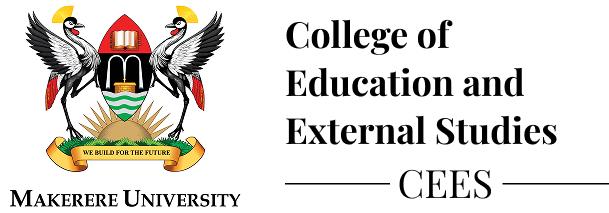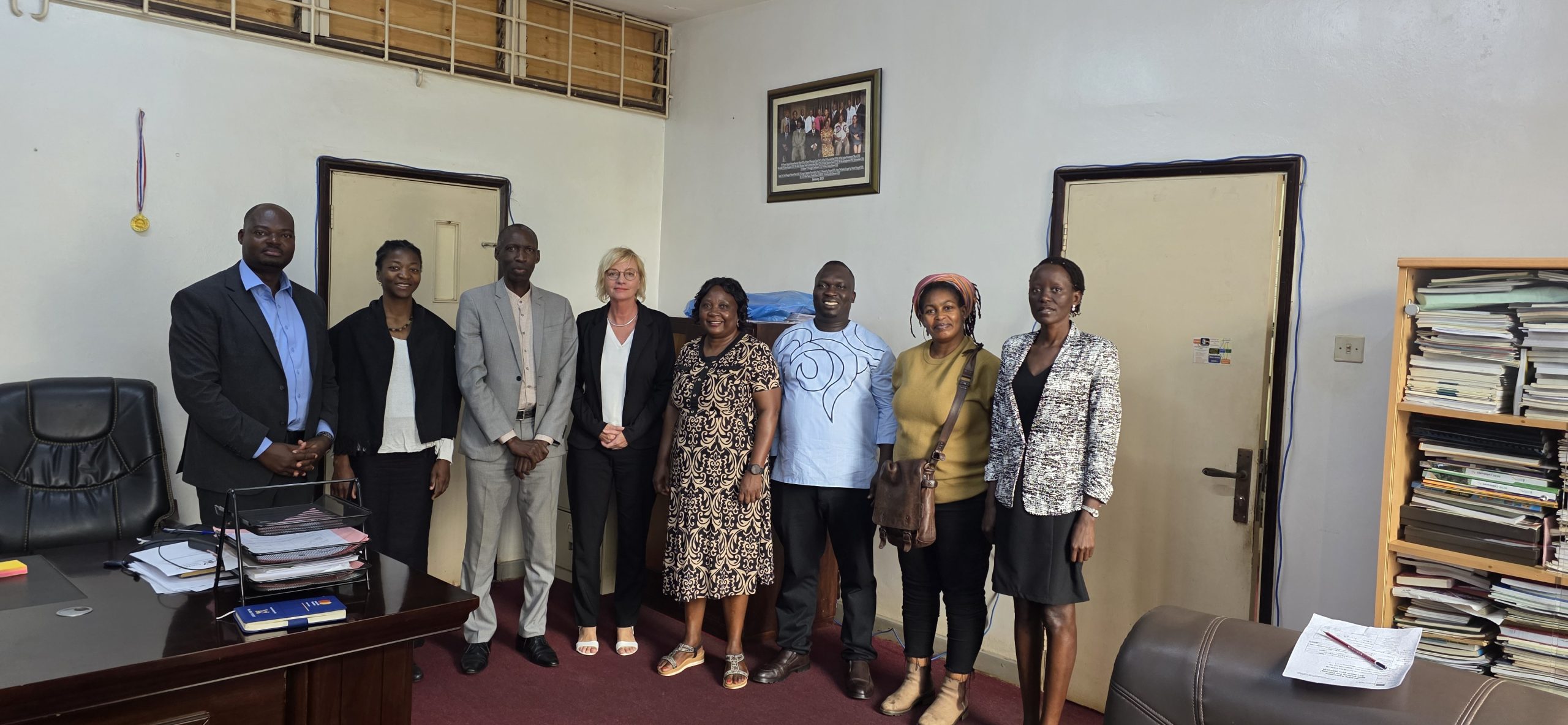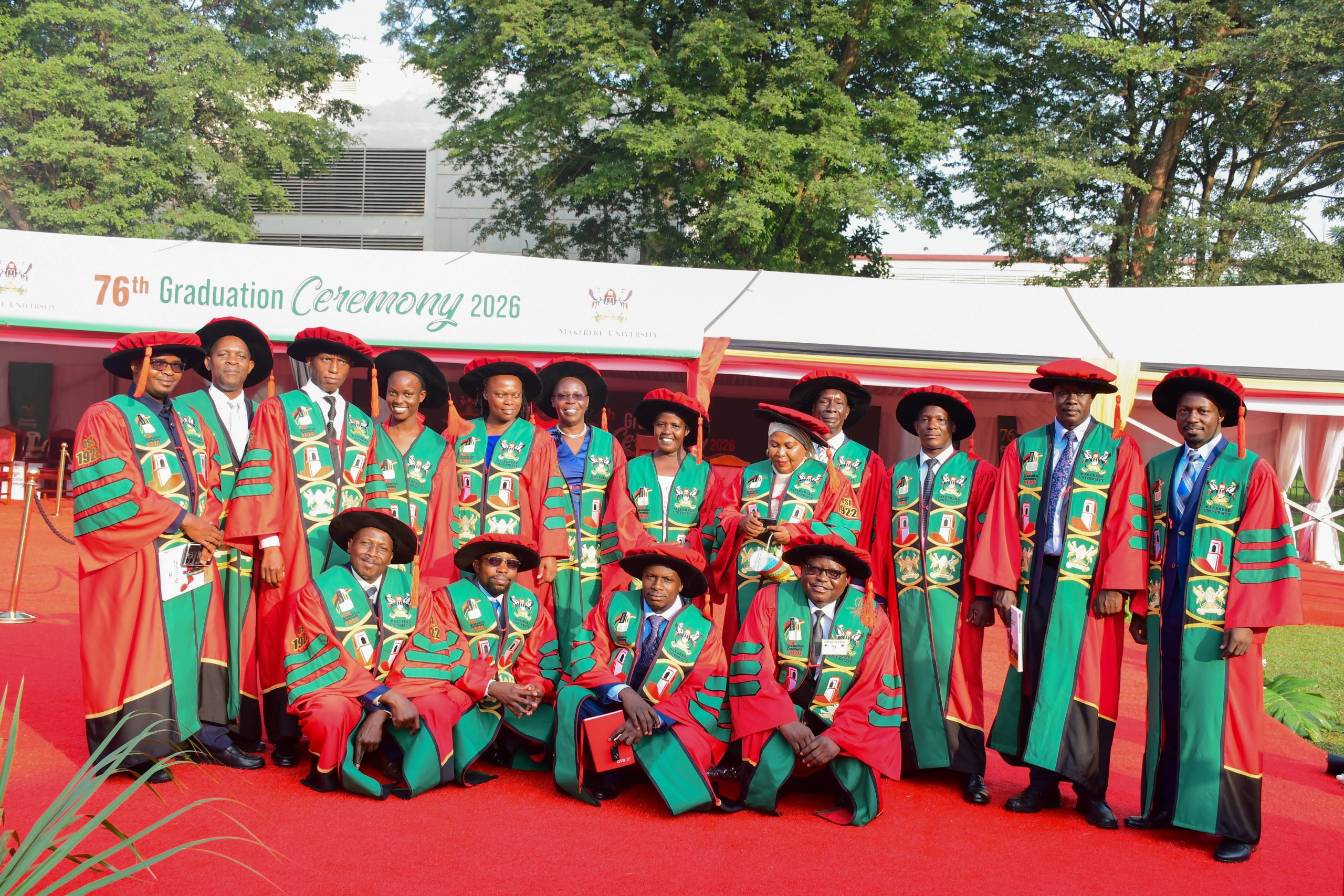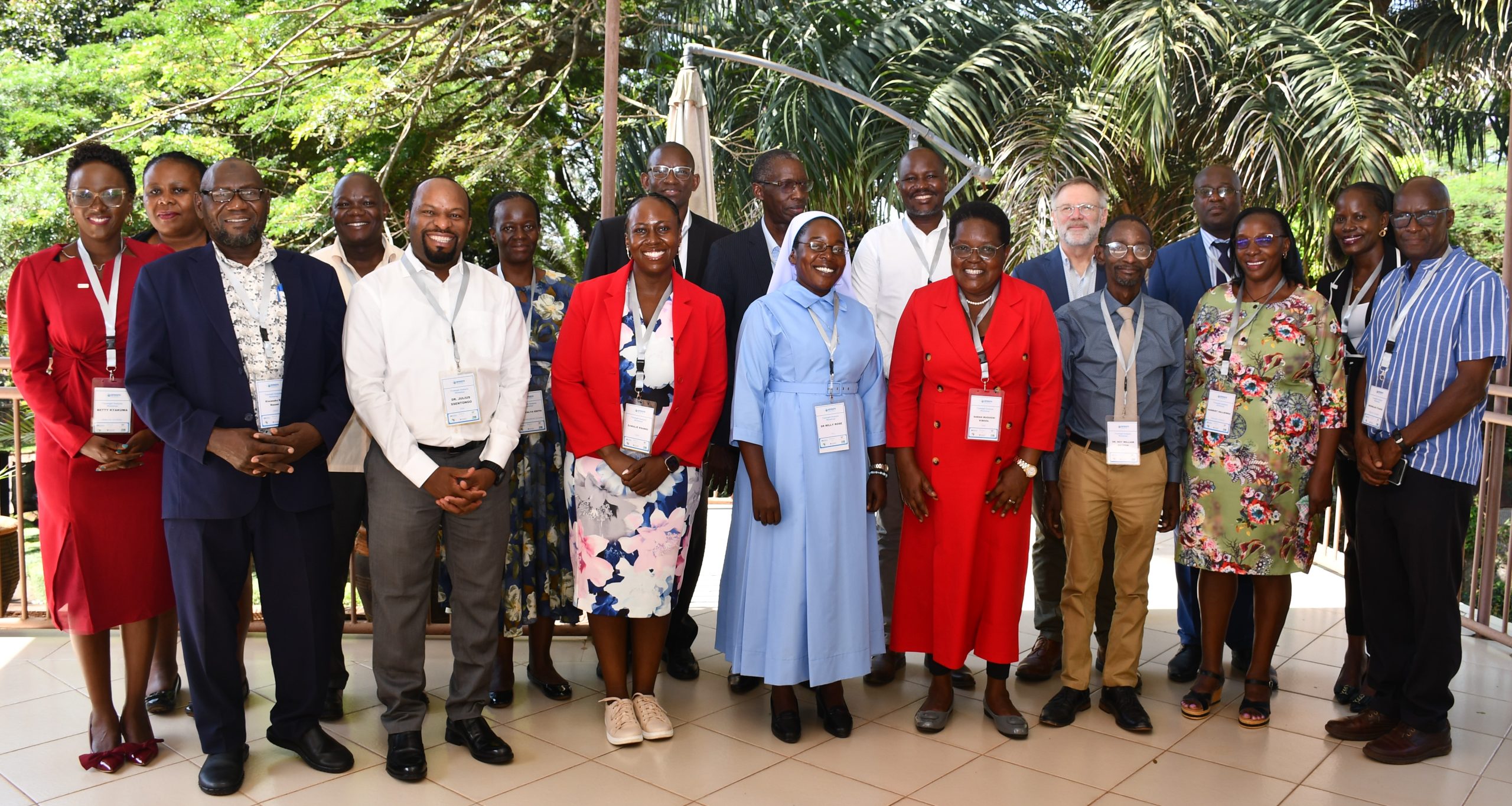Academicians at Makerere University have called for equity in education delivery, saying the Covid-19 pandemic exposed our education systems as one that favours the elite/urban students and disadvantages the rural poor students.
The call was made by Prof. Anthony Muwagga Mugagga while delivering a key note address on “Blended Pedagogical Approaches and their Impact on Learning Cultures During and After Covid – 19 pandemic.”, at the opening of a symposium on Teacher Education under the theme “Pandemic’s effects on Education in East Africa.
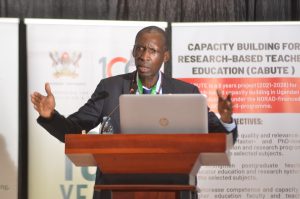
Prof. Anthony Muwagga Mugagga, Principal CEES.
The country, upon the outbreak of the pandemic the government adopted certain Pedagogical interventions which included, home learning packages/materials, mainly distributed through newspapers, which cost between Shs1000 and UShs 2000.
Prof. Mugagga argued that the poor, who on average earn between 0 and UShs 1000, could not afford this.
The government also used Radio and Television programmes for the candidate classes, which were presented during the day. Prof. Mugagga, however says this still left out the rural students who were in the gardens during the delivery of these classes.
Another method of blended learning adopted during the pandemic was the Home Parental assistance and guidance. This would imply that all parents with children
at school irrespective of level of formal schooling were supposed to provide some degree of pedagogical assistance to their children. “Unfortunately, approximately 50% of the rural people in
Uganda are illiterate or Semi illiterate , but even those who are fairly schooled cannot cope with the dynamic school curriculum reigning today,” Prof. Mugagga said during his keynote address.
Using WhatsApp messages to communicate between schools and students and emails was only a preserve of the urban elite, the professor said.
“The Covid-19 pandemic exposed our education house. It showed that indeed our education system and its planers are skewed towards the elite and the urban rich,” Prof. Mugagga said.
Prof. Mugagga recommended certain changes if the education system is to have meaningful blended pedagogical interventions.
i) Functional state structures
ii) Governance and political as well as social accountability for all rich, middle and poor .
iii) Parity and equity in educational opportunities for all
iv) Meritocracy versus favoritism in access to good educational opportunities: The best are selected and not those who are most favored by the system.
v) Strong leadership and administration which makes state institutions functional and powerful
vi) A Strong sense of entrepreneurship on part of all education stakeholders
vii) Strong civil society
viii) An overall sense of professionalism by all
ix) Strong vocational and technical education
x) Pedagogical innovativeness by all
xi) Plan but in cognizant of our affluent-poverty education access divide.
xii) Train both the in-service and pre-service teachers in use of Emerging Technologies (ETs ) such as Mobile phones, Televisions and Radio among others.
xiii) Create inclusive Education technology implementation frameworks from Early Childhood Care Education (ECCE) to university levels but tailored to the Ugandan context.
The symposium, which was also attended by Ministry of Education Official, was organized by Capacity Building for Research-Based Teacher Education (CABUTE) project.
Commissioner Jonathan Kamwana, called on the university to train teachers in preparation for crisis. “We need to prepare out teachers to handle refugee students and those from war tone areas.” “We also need to teach them soft stills, values that are conducive for the environment,” Mr. Kamwaka said.
The ministry he said has got a teacher training framework which has competence profiles for all teachers at all levels. The ministry he said has done studies and has the teacher policy which is hoped will guide training of teachers and better the quality of the teacher sent out into the schools.
About CABUTE:
CABUTE is a 6 years project (2021-2026) for research-based capacity building in Ugandan teacher education under the NORAD-financed NORHED-II-programme. It has so far issued 16 masters scholarships and 4 PhD scholarships to teachers of NTCs and PTCs.

